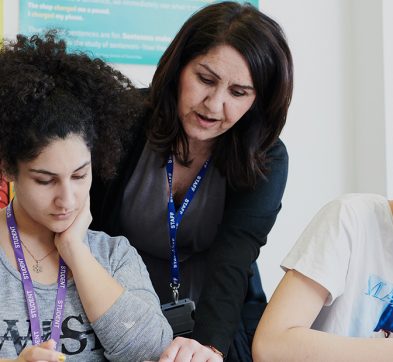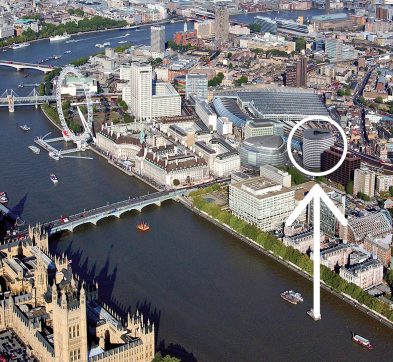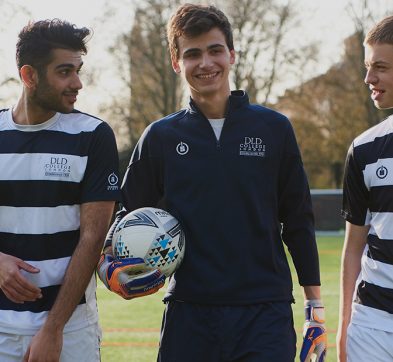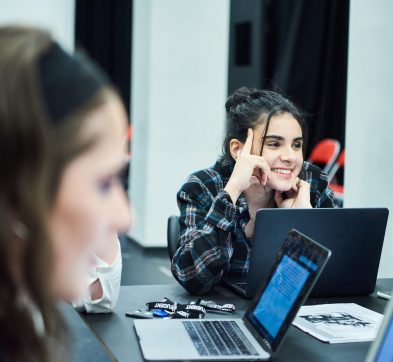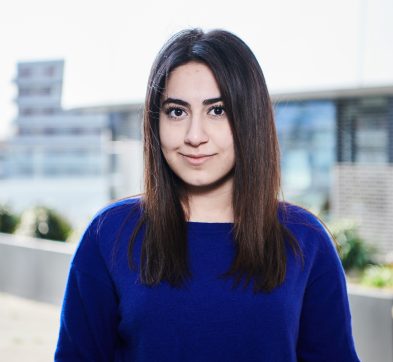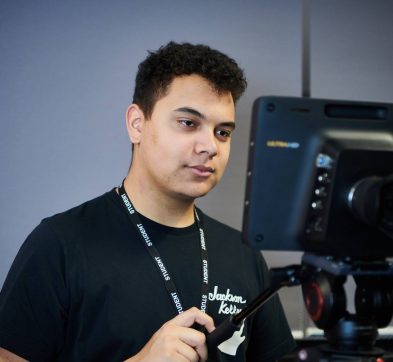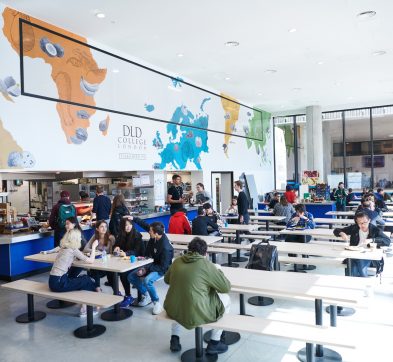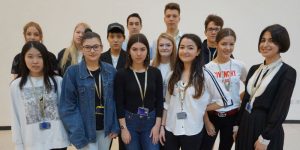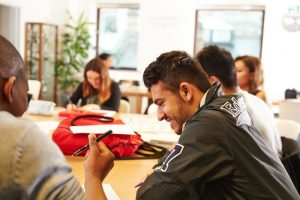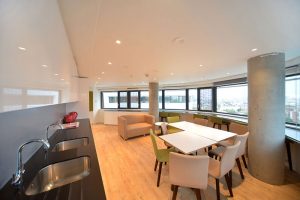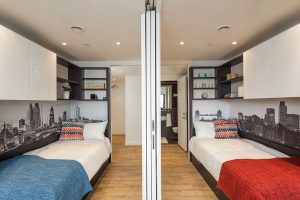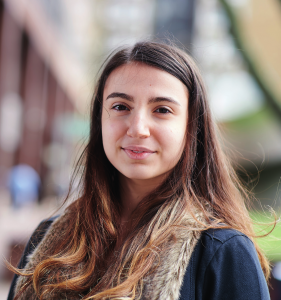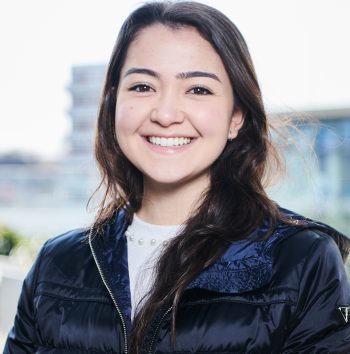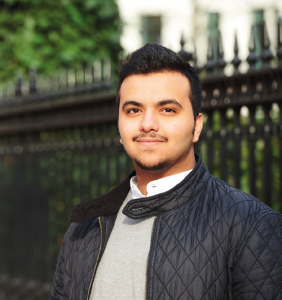Study at DLD College London
Study in the heart of London at one of the top independent colleges in the country.
DLD is the only college with on-campus boarding facilities located in central London. In college, we provide a caring, supportive, and student-focused environment, with a wide range of courses and subjects to choose from. DLD Students benefit from amazing learning and enrichment opportunities, and many progress to join some of London and the UK’s top universities.
We offer high-quality GCSE, A-level and International Foundation Programmes in a vast selection of courses. Five-star boarding & accommodation available, the perfect environment to live, study, make friends and enjoy extra-curricular activities from tennis to tai chi.
- The only on-campus, purpose-built boarding school in the heart of London. 5-star student accommodation in central London.
- A pathway to top London and global universities. London is home to world-class universities than any other city on earth. 61% of DLD students progress to London universities including LSE, Imperial, and City.
- A wide choice of courses and subjects. Leading in digital, creative and finance courses.
- Top-class facilities and unique learning experiences. Over 30 weekly college clubs enable students to develop their interests and relax outside of their studies. Facilities include a new library, dedicated student well-being centre and our Global Kitchen, opened Michellin-starred Atul Kotchar.
Business and Economics Foundation Programme - popular course
Situated in the heart of London, DLD College is ideally placed for students preparing for a career in the commercial sector. The College is within easy reach of the Bank of England and the London offices of major multinational firms such as Facebook and Google.
In today’s digital age, it is essential for learners to future-proof their education. The Business and Economics pathway seeks to inspire future leaders and prepare students for undergraduate study in a range of courses. In the past, our students have received offers for courses such as Business Management at King’s College London, International Banking and Finance at City University London and Accounting and Finance at the University of Birmingham.
In addition to the common Key Components Strand, students will study the following subject components:
BUSINESS AND ECONOMICS SUBJECT COMPONENTS
21ST CENTURY BUSINESS (FACULTY OF SOCIAL SCIENCES)
Businesses and business leaders have been key architects of the digital age and the globalised world we inhabit. The challenge of managing finite resources in a way that satisfies a network of stakeholders is perhaps greater and more exciting than ever.
MANAGEMENT & STRATEGY (FACULTY OF SOCIAL SCIENCES)
The fast-paced and dynamic nature of modern business requires leaders to be incisive in their decision making whilst taking into account the interests of their ever expanding group of stakeholders. This module explores a variety of decision-making models based on fundamentals of business strategy. As part of this course, students will explore the work of such important authors as Peter Drucker and Michael Porter.
PRINCIPLES OF ECONOMICS (FACULTY OF SOCIAL SCIENCES)
In light of the global financial crisis, Economics continues to be the key discipline that students need to understand the world we live in today. ‘Principles of Economics’ will cover the basics of Micro and Macro Economics that students will need to begin to understand and critically engage with the world around them.
THE GLOBAL ECONOMY (FACULTY OF SOCIAL SCIENCES)
In a world that is more connected and interlinked more than ever before, the growth of international trade, multi-national corporations and improvements in technology are changing how markets interact. In ‘The Global Economy’ students will study some of the key reasons and effects of these changes and be equipped with the tools to be difference-makers in the new global economy.
Engineering Foundation Programme - popular course
More than ever before in human history, we are building. In addition to physical structures and complex machinery, we are building in the virtual world. The Engineering IFP is ideal preparation for undergraduate study in a range of fields.
Engineers need to be able to address the needs of the future. Engineering is an extremely broad field encompassing civil, mechanical, electrical, electronic, aeronautical, automotive and biomedical engineering. Successful graduates of the DLD College London IFP in Engineering have received offers for prestigious courses such as Electrical and Electronic Engineering at the University of Manchester and Mechanical Engineering at Queen Mary, University of London. The inclusion of the Advanced Mathematics content gives students access to other courses including Computer Science.
In addition to the common Key Components Strand, students will study the following subject components:
ENGINEERING SUBJECT COMPONENTS
ADVANCED MATHEMATICS I (FACULTY OF MATHEMATICS)
More than ever before in human history, we are building. In addition to physical structures and complex machinery, we are building in the virtual world. Engineers need to be able to address the needs of the future. Advanced Mathematics 1 equips learners with the core skills required to embark on further study of this dynamic field.
ADVANCED MATHEMATICS II (FACULTY OF MATHEMATICS)
Building on prior study, in Advanced Mathematics II students will expand their knowledge and skills gained and apply them to more complex issues. This module demands an analytical and synthetic approach that allows learners to develop engineering knowledge, skills, imagination and experience to the highest levels in readiness for their future studies and career.
THE FOUNDATIONS OF PHYSICS (FACULTY OF SCIENCE)
The aim is to introduce important conventions and principles that permeate physics, giving students the ability to effectively communicate their knowledge. Understanding the key concepts, will enable students to apply mathematical models to various situations so as to be able to analyse and link ideas.
THE APPLICATIONS OF PHYSICS (FACULTY OF SCIENCE)
Building on the content of the first Unit, this Unit introduces a breadth and depth of subject matter that allows students to wrestle with abstract ideas. More challenging topics are covered and new models introduced to explain our observations. Furthermore, conflicts will be introduced to show how scientific theories and understanding change as new evidence is obtained.
Case Studies
Mona
- Originally from Iran
- Studied A level Maths (A), Further Maths (A) and Physics (B)
- Destination: University of British Columbia to study Computer Engineering
Mona secured places a top universites in the UK but has decided to pursue her studies in Canada. She is a vibrant, courteous, positive thinking and highly motivated individual, and will embark on a Software Engineering degree.
Tia
- Joined DLD College in September 2017
- Studied Computer Science, Maths, History and EPQ
- Now studying Computer Science at Royal Holloway
Tia is a passionate advocate of increasing female participation om Science, Technology, Engineering, and Mathematics, both in education and across society and industry.
Tia delivered the final presentation that saw her team win Deutsche Bank’s Global Hackathon in 2018. She is an industrious programmer with considerable experience in coding; she was appointed as one of the first Digital Innovators at DLD.
“I’m so grateful for my past two years at DLD College and the people I’ve met along the way, the memories made and the continuous support from staff – thank you!”
Abdulaziz
- Originally from Saudi Arabia
- Studied Business Foundation Programme
- Destination: University of Westminister to study Business Management.
Originating from Saudi Arabia, Abdulaziz joined DLD in order to deepen his knowledge of Business theory and practice. He immediately made a firm impression as a serious academic student, one who clearly enjoyed discussing wider global business concerns that he perceived to be significant. He has made an enthusiastic contribution to the Student Council, where his peers elected him as Vice President for Culture and Social Events. In this capacity he honed his obvious skill in public speaking and widened his experience of acting in a leadership role.
His warm-hearted and approachable manner made a lasting impression on his peers, and we are delighted that he now has the opportunity to study Business Management in preparation for what will undoubtedly be a successful career.


